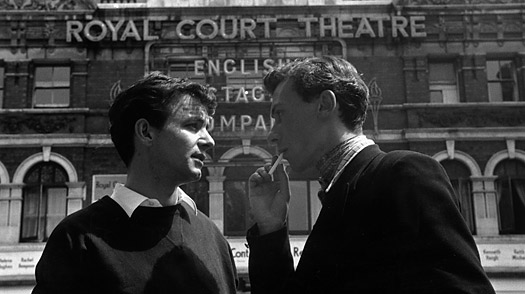Current projects:
Krymov UK lab
Krymov is hailed by the Guardian as “among the greatest directors in the world”, and now lives in political exile from Russia following the invasion of Ukraine. Facing wide-spread censorship in his home country, Krymov now returns to create theatre in the UK for the first time since his rave-reviewed productions of A Midsummer Night’s Dream and Opus 7 wowed audiences at the RSC, Barbican, and Edinburgh International Festival over a decade ago.
With the support of Zima Magazine, Handsome Dog Productions, and SCRUM Theatre, Krymov is working with British actors for the first time in his career, in a London iteration of his famous Lab.
ABOUT DMITRY KRYMOV
A theatre director, scenographer, and visual artist, Krymov is internationally beloved for his visually stunning, richly layered reinventions of classics, where he and his company combine fine art, prose, poetry, music, and popular culture into a mercurial tapestry. The New York Times calls him “one of the world’s finest theatermakers”. He has won many awards for his work including five Golden Mask awards (Russian National Theater Award), four Crystal Turandot awards (first post-Soviet Theater Award) and a Herald Angel Award (Edinburgh International Festival)
In his productions, the design goes on a journey alongside the characters; often, the actors transform their environment, using props and scenery to construct new worlds right before the audience's eyes. Lyn Gardner says in the Guardian that “it’s rare, even in the top ranks of the world's directors, for a single individual to get the credit for forging an entirely new genre. But Krymov, a set designer and painter until he made his directorial debut at the relatively ripe age of 48, has managed it”
Since the war Dima has been working in Lithuania, Latvia, Trailer:Fragments Trailerand a resident as the experimental La Mama theater in New York where he works with his first lab with US actors.
THE AIM OF THIS SHOWING
To find a stage and a producer for a future full production re-introduce Krymov’s visionary work to the British theatre ecosystem gather support around providing creative refuge for Krymov in the UK.

CENSORED: UNTITLED ROYAL COURT PROJECT
When Theatre Changed Drama Forever
This film will chart the history of The Royal Court looking at its origins post WW2 through to the present day, studying the writers, directors and actors that contributed to this evolving face of British theatre, particularly in its struggle against official and unofficial censorship .The film will begin by investigating The Royal Court’s role in the battle with the Lord Chamberlain’s censorship act, and how it continued, after that act’s abolition, to evade the constrains of conservatism and celebrate the power of writing on stage.
